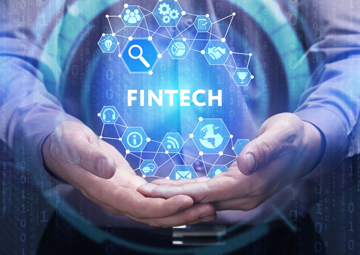
Before going on to this data sharing issue, let us look at some background details. Banks have enhanced many of their customer facing front-end operations with digital solutions. Automation in the banking and financial sector began with core banking adoption which took almost 20 years, then came Internet banking which took another 10 years and quickly moved to mobile wallets or e-wallets. Adopting these new technologies did not have an impact on cost cutting but it greatly increased customer convenience. The new addition to automation in the banking and financial sector is the concept of open banking.
Open banking is an emerging term in the financial sector that involves:
- The use of Open APIs that enables third party developers to build applications and services around the financial institution
- Greater financial transparency option for account holders ranging from Open Data to private data
- The use of open source technology to achieve the above.
In Europe, the Open Banking change was introduced by the revised Payment Service Directive known as PSD2which requires European banks to share data with financial technology companies (fintech companies) if the customer requests to do so. The regulation aims to stimulate competition by giving fintech companies access to customer data that they have been collecting for many years without the bank’s authorization.
US regulators are also planning to adopt a similar approach. Last year the Consumer Financial Protection Bureau indicated its approach for mandating that banks allow access to financial data. In October last year, the Bureau director warned banks not to limit access to customer data to third party agencies working on behalf of the customer.
But US banks are resisting such data sharing because they are forced to share information with fintech companies for delivering in demand payment services without capitalizing from those services. This approach could give fintech companies a huge advantage by helping them steal customers from established banks without allowing banks to compete directly in the digital banking space.
The US version of PSD2 would aim at fulfilling consumer demand for simpler and more secure digital banking tools. If data sharing becomes mandatory, what can banks do? A practical way is to selectively share data with financial companies. For this, first they have to create efficient and secure application programming interfaces. First banks could supply fintech companies non-real customer data on which to build apps. A detailed evaluation of these apps can be done to determine which are the most promising or advantageous ones and decide which ones to invest in with real customer data, capital or both.

Banks should be able to ensure customers that their data is safe. If banks succeed in persuading fintechs to fortify their security measures, they can help strengthen customer trust through digital banking tools. Banks could become the central source of identity verification in time. The chances of developing this business opportunity could be reduced by a regulation like PSD2 that would enable fintech companies to easily access customer financial data, and ultimately spread the information further online. So the prime concern of banks should be to try and avoid the introduction of such regulations. One way to minimize chances of such regulations is by strategic sharing of data with fintechs that have the permission of customers to access their data.
Among the major banks that have allowed third parties to access their data are JPMorgan Chase and Wells Fargo. Their reasons for sharing are considered to be:
- To rebuild customer trust and loyalty
- To leverage third parties’ existing products for their own customer bases via agreements and partnerships, and thereby expanding their portfolio of consumer-facing products at lower cost than developing them in-house.
- To utilize cross-selling opportunities. Banks could utilize accounting and personal finance management tools of third parties to engage in cross selling services that the third party may not be able to provide.
Working with fintechs may become indispensable amidst the profound changes being introduced in the financial services sector including changing customer preferences. The fintech revolution is real, and every bank and traditional financial organization must have a good strategy in place to harness the advantages and stay competitive.



